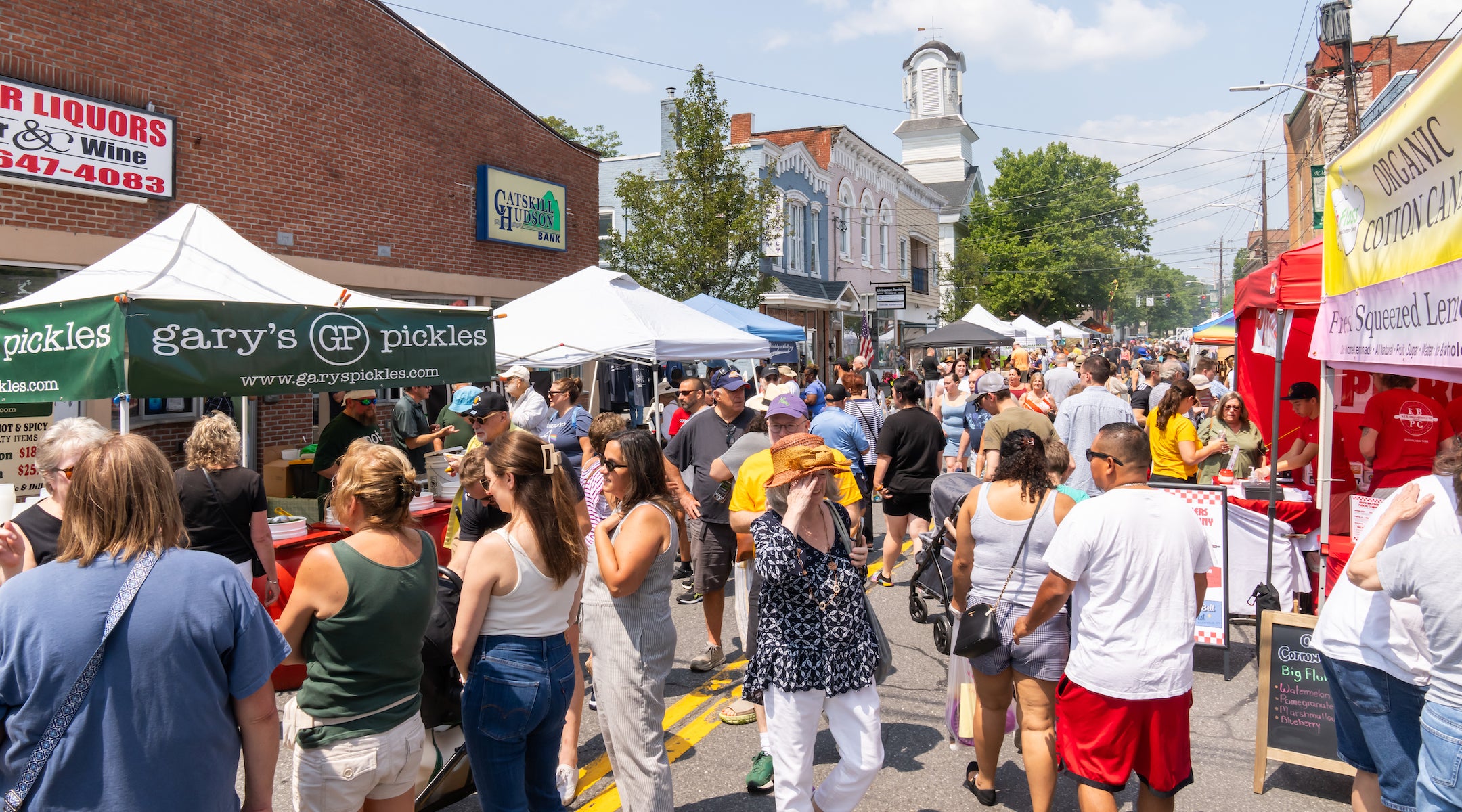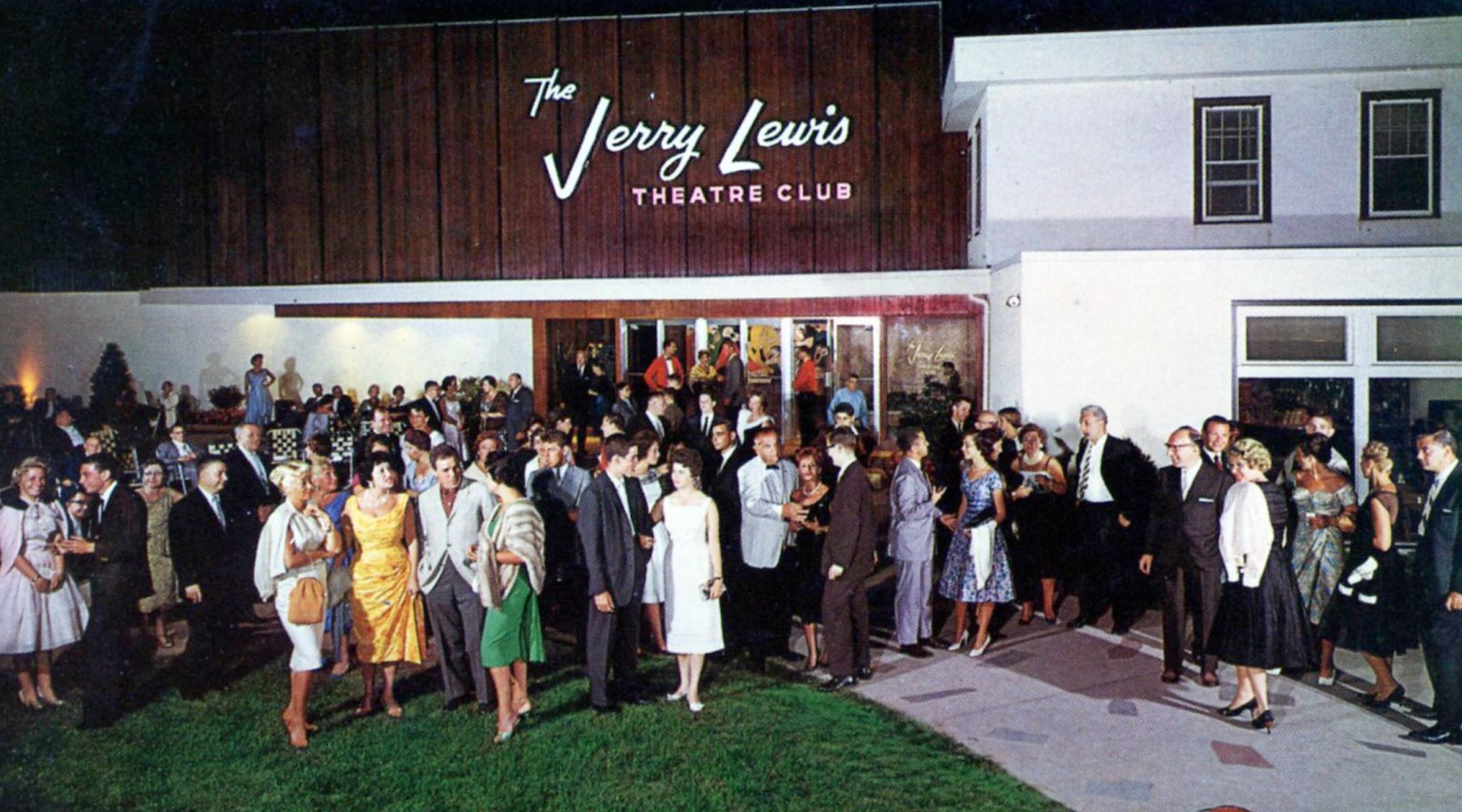The Borscht Belt Fest is back for its third year of nostalgia-filled fun in the Catskills.
Taking place July 26-27 in Ellenville, New York, this year’s festival will highlight the comedy, culture and food of the iconic upstate resorts and bungalow colonies that made summers special for scores of American Jews in the mid-20th century.
With an expected attendance of between 6,000 and 8,000 people, this year’s Borscht Belt Fest is yet another example of large-scale Jewish festivals that are set to occur in New York throughout the year.
The Borscht Belt Fest is the “marquee event” of the Borscht Belt Museum, a museum that spotlights the golden age of the Jewish Catskills that opened in a former bank in Ellenville in the summer of 2023.
“We like to highlight the Jewish joy aspect of this period of history,” said Andrew Jacobs, president of Catskills Borscht Belt Museum’s board of directors.
This year, the festival is partially funded by a grant from the UJA-Federation of New York. The extra support has allowed festival organizers to expand the scope of this year’s event: “We’re just doing more of everything,” Jacobs said. That means more comedy shows, more food options and more panel discussions than ever before.

The Borscht Belt Festival, held in Ellenville, New York, has been the marquee event of the Borscht Belt Museum since 2023. (Courtesy of the Borscht Belt Museum)
The Borscht Belt is a nickname for the Catskills region of upstate New York, which became famous for its summer bungalow colonies and resorts that, beginning in the post-World War II era, were frequented by Jewish families. At the time, Jews were excluded from many mainstream holiday destinations, so Jews — and Jewish New Yorkers, in particular — built vacation spots in parts of Sullivan, Ulster and Orange counties, eventually transforming the Catskills into hotspot for Jewish culture and community.
By the 1970s, the Catskills fell out of fashion for Jewish families. By then, airfare had become significantly cheaper, non-Jewish resorts began to allow Jewish guests, and the availability of air conditioning in New York City apartments meant that escaping the city for the summer was no longer a necessity, but a luxury. Over the ensuing decades, nearly every one of these Jewish resorts have permanently closed their doors; several have burned to the ground in recent years.
Today, this Jewish vacationland has been in decline for nearly as long as it once thrived. Nonetheless, the nostalgia for the Borscht Belt’s golden age remains strong — even among those who are too young to have ever played “Simon Says” at Grossinger’s Resort.
This year’s Borscht Belt Fest will emphasize the comedy culture of the Borscht Belt, where comedy legends like Mel Brooks, Jackie Mason and Joan Rivers got their start. It will be headlined by Josh Gondelman, an Emmy-winning writer, stand-up comedian, and author, and will feature more than 30 other performers, including Elon Gold and Sarge.
“Everyone likes to laugh,” Jacobs noted.
As part of the festival, Gondelman will present a Lifetime Achievement Award to actor and comedian Robert Klein on Saturday night. Klein began his career in the Borscht Belt at resorts like the Concord and Kutsher’s, and he eventually became an iconic comedian across Broadway, film and television.
In addition to stand-up comedy, festival-goers will be able to watch a short play about a weekly mahjong game, participate in a Borscht Belt-themed story slam, experience a deep dive into the Yiddish music of the Catskills, and much more.
Another central event of the festival weekend is Sunday’s street fair, which is free for all attendees. Guests will enjoy booths of Jewish food vendors, klezmer music, cooking workshops, and local artisans. They can also stop by the Borscht Belt Museum to check out its current exhibit, “And Such Small Portions! Food and Comedy in the Catskills Resort Era.”
“It’s a great way to reconnect to Jewish culture from the past,” Jacob said of the festival, “whether it be Yiddish-American pop music or contemporary, young, up and coming comedians who are reinterpreting that [style of comedy] for modern audiences.”
The New York Jewish Week brings you the stories behind the headlines, keeping you connected to Jewish life in New York. Help sustain the reporting you trust by donating today.





